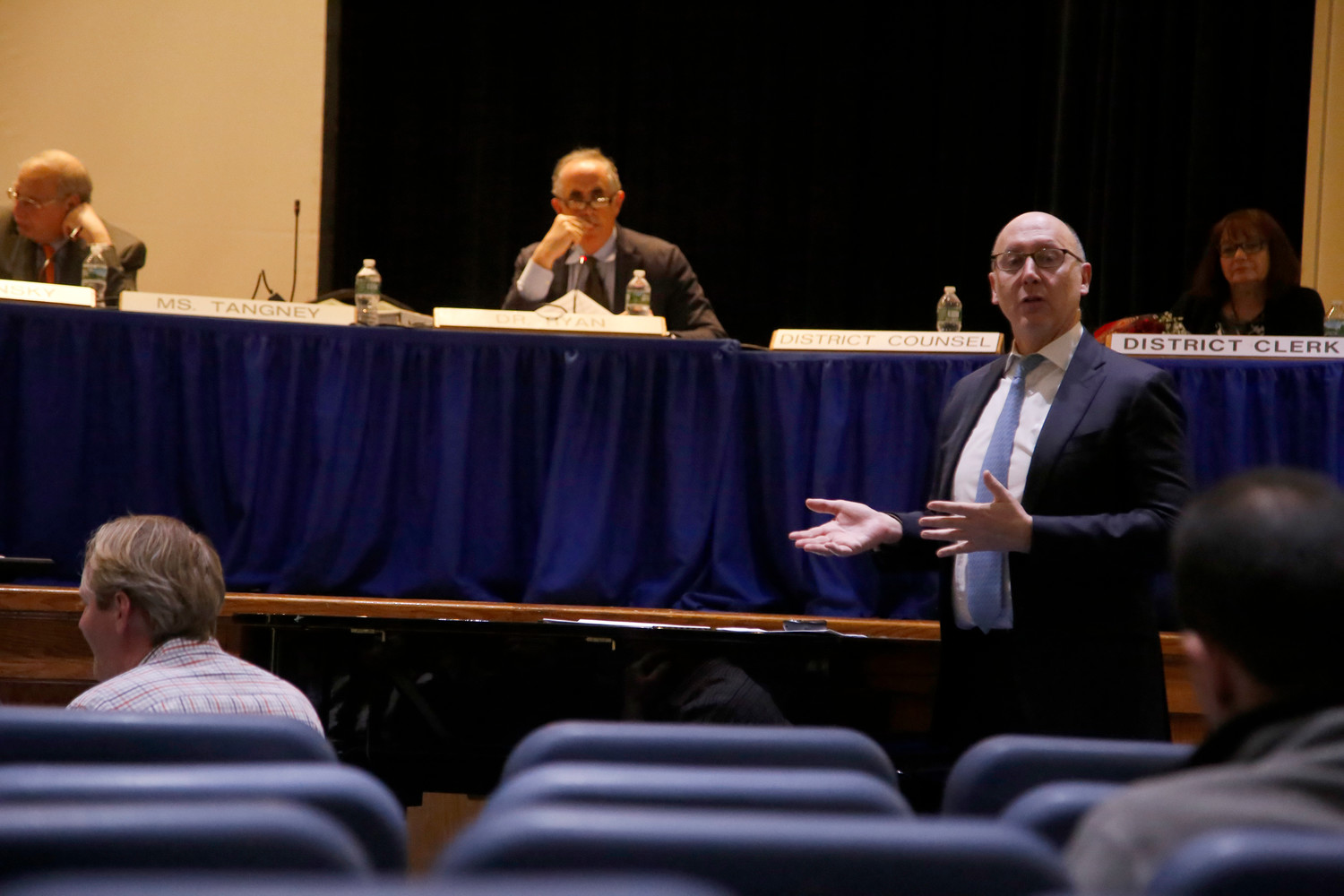Long Beach school officials kick off budget talks
The Long Beach Board of Education kicked off budget talks last month, and district officials say that next year’s proposed spending plan is expected to increase by $3.4 million, mainly due to contractual salaries and a spike in health insurance costs.
The current $135 million budget maintained programs and services, and officials say the proposed spending plan would do the same. At the Feb. 8 board meeting, officials had yet to announce how much the tax levy — the total amount that the district must raise through property taxes — would increase.
Under the state’s 2 percent tax cap, the district’s chief operating officer, Michael DeVito said last month that the district could raise about $2.3 million in taxes to fund the 2018-19 budget.
Board of Education trustee Maureen Vrona asked about the amount of state aid the district would receive, though DeVito said it was too early to say.
“We are a little bit early, but that’s good,” he added. “We’ll get this information in the next couple of months. But based on what we’re hearing, it doesn’t look like we’re going to be getting any major influxes of state aid.”
DeVito also urged trustees to think carefully about the draft budget.
“I know we don’t want to use reserve funds,” he said. “We’re trying not to rely on fund balance, because if we use that to support program going forward, eventually it’s going to run out. But I know we don’t want to cut program either.”
He added, “We know, considering this framework of what we have here, if there’s something we’re going to add [to the budget], we’re probably going to have to reduce something.”
Officials attributed the estimated spending increase to contractual staff salaries, which are expected to rise by about $1.6 million next year. Health insurance costs, meanwhile, are set to spike by $1.2 million, a result of premiums that have skyrocketed over the past three years, the district’s chief operating officer, Michael DeVito, said.
More than 1,000 active and retired employees are enrolled in the district’s health insurance plans. The projected costs of retirement benefits for employees and teachers were estimated based on salary projections. For teachers, the cost is going up by half a million, while the cost for employees is staying about level, DeVito said. The difference is a decrease of about $70,000.
The proposed amount for next year’s workers’ compensation benefits is a little more than $1 million, 10 percent lower than the current year budget. The projection is based on a five-year average because it’s difficult to predict future claims against the district, DeVito said. The district is self-insured.
“We save about $100,000 from the current year budget, which helps, but it’s not a huge impact,” DeVito said. “It’s kind of a level area of benefits.”
Social Security and Medicare — which are calculated based on salary projections — are expected to increase $170,000 to $5.2 million over the current budget, DeVito said.
It’s a “function of our salaries,” DeVito said. “When the salaries go up, our contributions to taxes go up. You think it’s not a lot, but when you add up a thousand people, it comes to an additional $170,000 that we have to put in the budget to pay for Medicare and Social Security, and that’s a considerable amount of money.”
The next step, DeVito said, is for board trustees to meet with administrators in the coming months to discuss the needs for the following year, including additions, reductions or any other modifications to the existing budget. “My recommendation for right now is to try to get as close to sustainability as possible,” he said, meaning that expenditures would ideally be balanced with revenues.
The board will hold additional budget meetings before a public vote is held on May 15. The next meeting is March 8.

 50.0°,
Fair
50.0°,
Fair 




